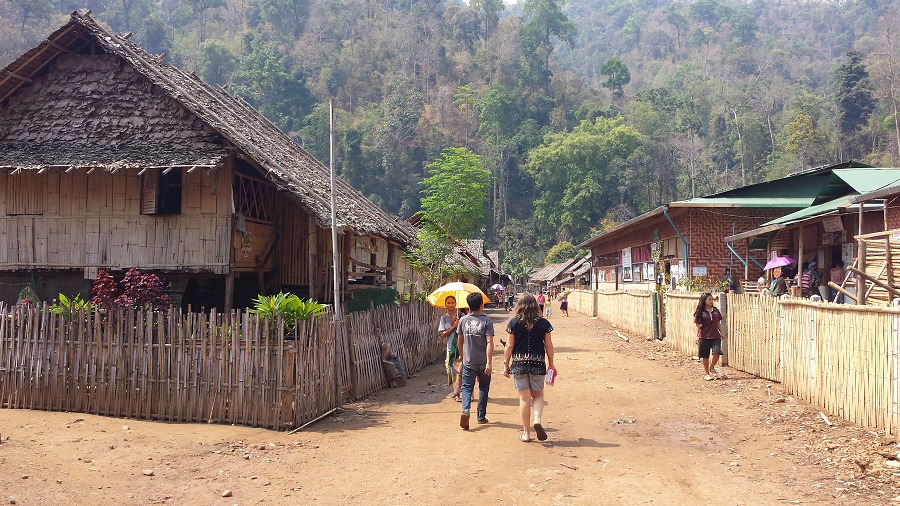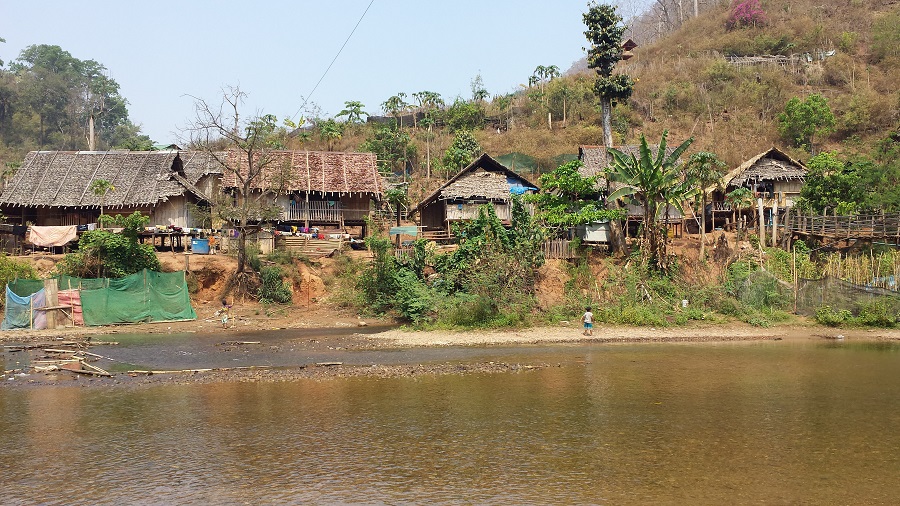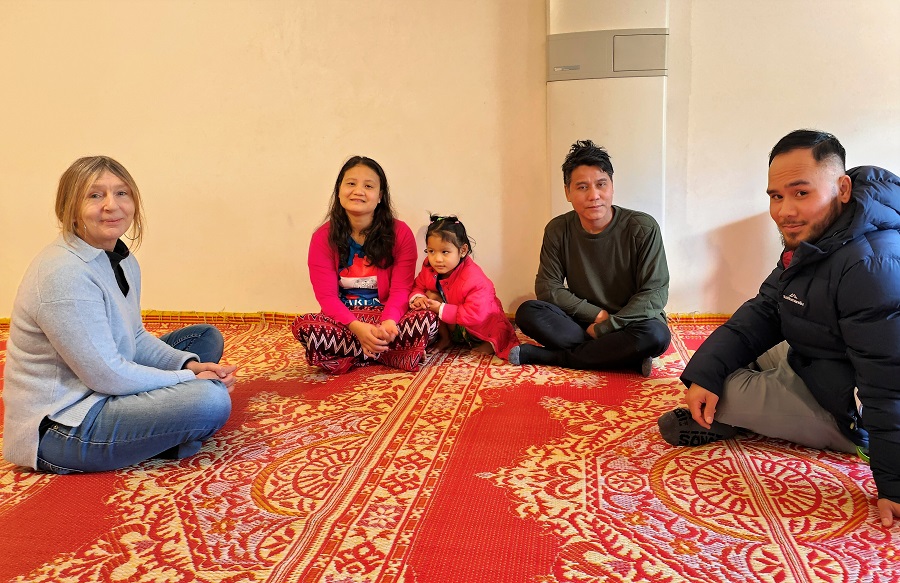We are at the home of new arrivals Day Wah, Hsar Nay Htoo and their four children. This modest brick veneer has views of historic Victorian cottages, and the Quarry Hill Primary School playground, where the three eldest children are today; they are the first Karen students to attend the 166-year-old school.
A neat row of shoes lines the entrance hall, ascending from smallest to largest. In the living room, two grey sofas and a four-piece dining setting are pushed against the walls and the space between filled with a big, brightly coloured floor rug.
The couple, plus BCHS Settlement Services staff Sue Ghalayini and Nay Chee Aung, are sitting cross legged on the rug, with a thermos, jug of tea, mugs and coffee sachets at the centre of their circle. Hsar Nay Htoo places warm, sweet drinks into everyone’s hands.
It’s been just six months since the family moved into this rental home in Bendigo, having spent their first month in Australia living with their relatives and sponsors. Having waited eight years between their humanitarian Visas being accepted and leaving a Thai refugee camp. Day Wah says they almost lost hope.
Day Wah had lived in the Mae Surin refugee camp for 22 years, due to sustained and systemic violence towards Karen people in their homeland of Burma (Myanmar).
Mae Surin is the remotest of all of Thailand’s camps and home to approximately 2000 people. Conditions are primitive. There are few opportunities for work and education. There is one small medical centre, no bigger than this Bendigo living room, where landmine injuries are treated and babies are born. As Sue says, it’s deep in the jungle “out of sight, out of mind”. Sue had visited in 2015 and 2016 as part of her role in supporting Karen refugees and understanding their journey.


Sue is one of three part-time humanitarian settlement case workers at BCHS. The team is currently supporting 195 former refugees and expect another 94 to arrive before the end of 2023. Since the Australian Government opened borders to refugees following COVID-19 restrictions, approximately 300 have arrived in Bendigo.
In the camp, Day Wah worked in education, religious and legal roles. He is hoping to use his diverse skills in Bendigo, but first must learn English. “I have so many things to learn,” he says. “I want to be independent.”
Day Wah says overwhelmingly the biggest challenge as a new arrival is the language barrier. (Today, Nay Chee is translating.) He does not understand English-speaking locals, and they do not understand him. But, six months into English lessons at Bendigo TAFE, he is learning. As are Hsar Nay Htoo and the children. The boys are coming home speaking the words of the playground and classroom.
Last month, Day Wah got his driver’s license. His driving instructor is now looking out for an affordable used car on his behalf.
Sue asks how they’re settling in, how are the neighbours, how are they going maintaining the garden? Day Wah nods and smiles that all is well, they have been welcomed into this street. Someone gifted them a second-hand mower.
Today Sue has explained the pilot light in the gas heater and checked the light globes in the lounge. She laughs she’s also good with plumbing. She helped the family secure this private rental home, thanks to her strong connections with several local real estate agencies.
“Many landlords now seek Karen tenants,” Sue says. “They’re clean, they’re tidy, they pay the rent on time … until they save a deposit and buy their own home.”
It’s also more common for new arrivals to stay with family rather than require private accommodation. Those families also sponsor and pay for their loved ones to come. In this case, almost $10,000 was saved for expenses and airfares.
New arrivals to Australia receive 12 months grace before the government requires them to either work or pursue further study. In that time, in Bendigo, they take part in a many Bendigo Community Health Services programs, covering such things as road safety, laws and culture, emergency services, public transport and more.
Sue says while local food producers such as Hazeldenes and KR Castlemaine are the biggest employers of Karen people, BCHS also encourages them to pursue other goals. She says if people commit to learning English, their long-term career and social outcomes are better.
She says considering the hardships and trauma new arrivals have endured, and the challenges they start with, their journeys to make a life here are phenomenal.
“A couple of people who arrived last month had never held a pen,” she says. “And they need to sign so many documents when they come. We have to explain to them, that x or circle is now your mark.”
With thanks to Day Wah and Hsar Nay Htoo for inviting us into their home and sharing some of their story.
